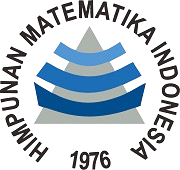Exploring Student Algebraic Thinking to Solve TIMSS Problems in Terms of Accommodator Learning Styles
DOI:
https://doi.org/10.30736/voj.v6i1.806Keywords:
Thinking Algebra, TIMSS, Kolb's Learning StyleAbstract
This study aims to explore students' algebraic thinking skills in solving Trends International Mathematics and Science Study (TIMSS) problems in terms of accommodator learning styles. The research design used is a case study with a qualitative analysis approach. The results showed that accommodating subjects were able to meet the indicators of algebraic thinking, namely generalization, abstraction, analytical thinking, dynamic thinking, and modeling. However, the lack of accuracy in performing calculation operations causes the answers obtained by the subject to be less precise on abstraction, analytical thinking, and dynamic thinking problems. The characteristics of subjects with accommodator learning styles who are more likely to use intuition in solving problems influence students' ability to solve problems related to algebraic thinking.
Downloads
References
Amerom, B. A. van. (2002). Reinvention of Early Algebra. Utrecht: Freudenthal Institut.
Amri, A. H., & Arsid, I. (2022). Kemampuan Berpikir Kreatif Siswa Ditinjau dari Gaya Belajar Pada Materi Aljabar di SMP Negeri 29 Makassar. ELIPS: Jurnal Pendidikan Matematika, 3(2), 43-53.
Azahra, A. M., & Masriyah. (2022). Berpikir Aljabar Siswa Dalam Menyelesaikan Masalah Aljabar Ditinjau Dari Gaya Belajar Visual, Auditori, Dan Kinestetik. Jurnal Ilmiah Pendidikan Matematika, 11(3), 744-753.
Carraher, D. W., Schliemann, A. D., Brizuela, B. M., Earnest, D., Schliemann, A. D., & Brizuela, B. M. (2006). Arithmetic and Algebra in Early Mathematics Education. Journal for Research in Mathematics Education, 37(2), 87-115.
Daimaturrohmatin, D., & Rufiana, I. S. (2019). Analisis Kemampuan Komunikasi Matematis Siswa Ditinjau dari Gaya Belajar Kolb. EDUPEDIA, 3(1), 17-31.
Gooden, D. J., Preziosi, R. C., & Barnes, F. B. (2009). An Examination Of Kolb’s Learning Style Inventory. American Journal of Business Education, 2(3): 57-62.
Hardianti, A., Matematika, P., Matematika, F., Ilmu, D., Alam, P., & Kurniasari, I. (2020). Kemampuan Berpikir Aljabar Siswa Smp Dalam Menyelesaikan Masalah Matematika Ditinjau Dari Perbedaan Jenis Kelamin. Jurnal Ilmiah Pendidikan Matematika, 9, 59–66.
Harti, L. S., & Agoestanto, A. (2019). Analysis Of Algebraic Thinking Ability Viewed From The Mathematical Critical Thinking Ablity Of Junior High School Students On Problem Based Learning. Unnes Journal of Mathematics Education, 8(2), 119–127.
Indraswari, N. F., Budayasa, I. K., & Ekawati, R. (2018). Algebraic Reasoning in Solving Mathematical Problem Based on Learning Style. Journal of Physics: Conference Series, 947(1).
Istikomah, Astuti, E. P., & Kurniawan, H. (2020). Kemampuan Berpikir Aljabar Siswa Climber dalam Menyelesaikan Masalah SPLDV. Journal of Mathematics Education, 6(2), 96–107.
Itasari, K., Pramudya, I., & Slamet, I. (2021). Mathematical Connection Analysis of High School Students with Accommodator and Diverger Learning Style, 597, 148-155.
Kieran, C. (2004). Algebraic Thinking in the Early Grades: What Is It? 1. The Mathematics Educator, 8 (1), 139-151.
Kolb, A. Y., & Kolb, D. A. (2005). Learning Styles and Learning Spaces: Enhancing Experiential Learning in Higher Education. Academy of Management Learning & Education, 4(2), 193-212.
Lew, Hee-chan. (2004). Developing Algebraic Thinking in Early Grades: Case Study of Korean Elementary School Mathematics 1. The Mathematics Educator, 8(1), 88-106.
Mutohhari, F., Sutiman, S., Nurtanto, M., Kholifah, N., & Samsudin, A. (2021). Difficulties in implementing 21st century skills competence in vocational education learning. International Journal of Evaluation and Research in Education, 10(4), 1229–1236.
Nurhayati, D. M., Herman, T., & Suhendra, S. (2017). Analysis of Secondary School Students’ Algebraic Thinking and Math-Talk Learning Community to Help Students Learn. Journal of Physics: Conference Series, 895(1), 1–7.
Patton, B., & Santos, E. D. L. (2012). Analyzing Algebraic Thinking Using “Guess My Number” Problems. Internasional Journal of Instruction, 5 (1), 5-22.
PeranginAngin, R. B., Panjaitan, S., Hutauruk, A., Manik, E., & Tambunan, H. (2021). Arah dan Trend Penelitian Pendidikan Matematika di Jurnal Riset Pendidikan Matematika (JRPM). Vygotsky: Jurnal Pendidikan Matematika dan Matematika, 3(1), 49.
Pratiwi, A., Widyarini, I., Al Yusainy, C., Marianti, S., & Rahmawati, I. (2011). Konstruksi Tes Gaya Belajar Berdasarkan Teori Belajar Eksperiensial David A. Kolb. Jurnal Interaktif FISIP UB, 1(1): 1-14.
Provasnik, S. (2013). TIMSS 2011 Grade 8 Released Mathematics Items.
Rahmah, K., Inganah, S., Darmayanti, R., Sugianto, R., & Ningsih, E. F. (2022). NonCommercial-ShareAlike 4.0 International (CC BY-NC-SA 4.0 Analysis of Mathematics Problem Solving Ability of Junior High School Students Based on APOS Theory Viewed from the Type of Kolb Learning Style, 5(2), 109-122.
Richmond, A. S., & Cummings, R. (2005). Implementing Kolb’s learning styles into online distance education. International Journal of Technology in Teaching and Learning, 1(1), 45-54.
Sudria, I. B. N., Redhana, I. W., Kirna, I. M., & Aini, D. (2018). Effect of Kolb’s learning styles under inductive guided-inquiry learning on learning outcomes. International Journal of Instruction, 11(1), 89–102.
Winarso, W., & Toheri, T. (2021). An Analysis of Students’ Error in Learning Mathematical Problem Solving; the Perspective of David Kolb’s Theory. Turkish Journal of Computer and Mathematics Education (TURCOMAT), 12(1), 139-150.
Downloads
Published
How to Cite
Issue
Section
License
Copyright (c) 2024 Lutfiyya Fajar Zahiroh, Masduki Masduki

This work is licensed under a Creative Commons Attribution-NonCommercial-ShareAlike 4.0 International License.
Copyright:
Authors who publish their manuscripts in this Journal agree to the following conditions:
- Copyright of any article on Vygotsky: Jurnal Pendidikan Matematika dan Matematika is held solely by the author under the Creative Commons Attribution 4.0 International license (CC BY NC SA).
- Authors can submit papers separately, arrange non-exclusive distribution of manuscripts that have been published in this journal into other versions (e.g. sending to the author's institutional repository, publication in a book, etc.) by acknowledging that the manuscript has been published for the first time in Vygotsky: Jurnal Pendidikan Matematika dan Matematika.
License:
Vygotsky: Jurnal Pendidikan Matematika dan Matematika is published under the terms of the Creative Commons Attribution 4.0 International License (CC BY NC SA). This license permits anyone to copy and redistribute this material in any form or format, compile, modify and develop this material for any purpose as long as it is not for commercial purposes. Additionally, anyone must provide credit and distribute contributions under the license of the creator of the original work.







